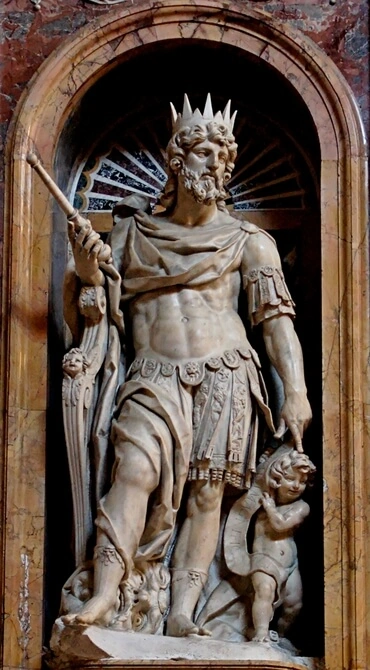1
Teško bezbrižnima u Sionu i onima koji su bez straha u gori samarijskoj, koji su na glasu između poglavica narodima, ka kojima dolazi dom Izrailjev.
2
Prođite u Halnu i vidite, i odande idite u veliki Emat, posle siđite u Gat filistejski; je li koje carstvo bolje od ovih? Jesu li im međe prostranije od vaših međa?
3
Teško vama koji mislite da je daleko zli dan, a primičete stolicu na kojoj je nasilje;
4
Koji ležete na odrima od slonove kosti i pružate se na posteljama svojim, i jedete jaganjce iz stada i teoce ugojene;
5
Koji pevate uza psaltire, i izmišljate sprave muzičke kao David;
6
Koji pijete vino velikim čašama, i mažete se skupocenim mirisima, a ne marite za polom Josifov.
7
Zato će sada otići u ropstvo među prvima koji će otići u ropstvo, i prestaće radost onih koji se goste.
8
Zakle se Gospod Gospod sobom, govori Gospod Bog nad vojskama; ja se gadim na ponos Jakovljev i mrzim na dvorove njegove; zato ću predati grad i sve što je u njemu.
9
I ako deset ljudi ostane u jednoj kući, umreće.
10
I kad uzme koga stric mu ili koji će ga spaliti da iznese kosti njegove iz kuće, reći će onome koji bude u kutu u kući: Ima li jošte ko kod tebe? A on će reći: Nema nikoga. A on će reći: Ćuti; jer ne pominjaše ime Gospodnje.
11
Jer evo, Gospod zapoveda i udariće dom veliki da se razvali i mali dom da popuca.
12
Trče li konji po steni i ore li se volovima? Jer vi pretvoriste sud u žuč, i plod od pravde u pelen.
13
Vi se radujete onome što nije ništa, i govorite: Nismo li svojom snagom dobili rogove?
14
Jer, gle, ja ću podignuti na vas dome Izrailjev, govori Gospod Bog nad vojskama, narod, koji će vas pritesniti od ulaska u Emat do potoka u pustinji.







